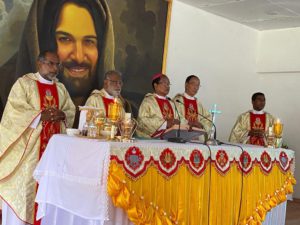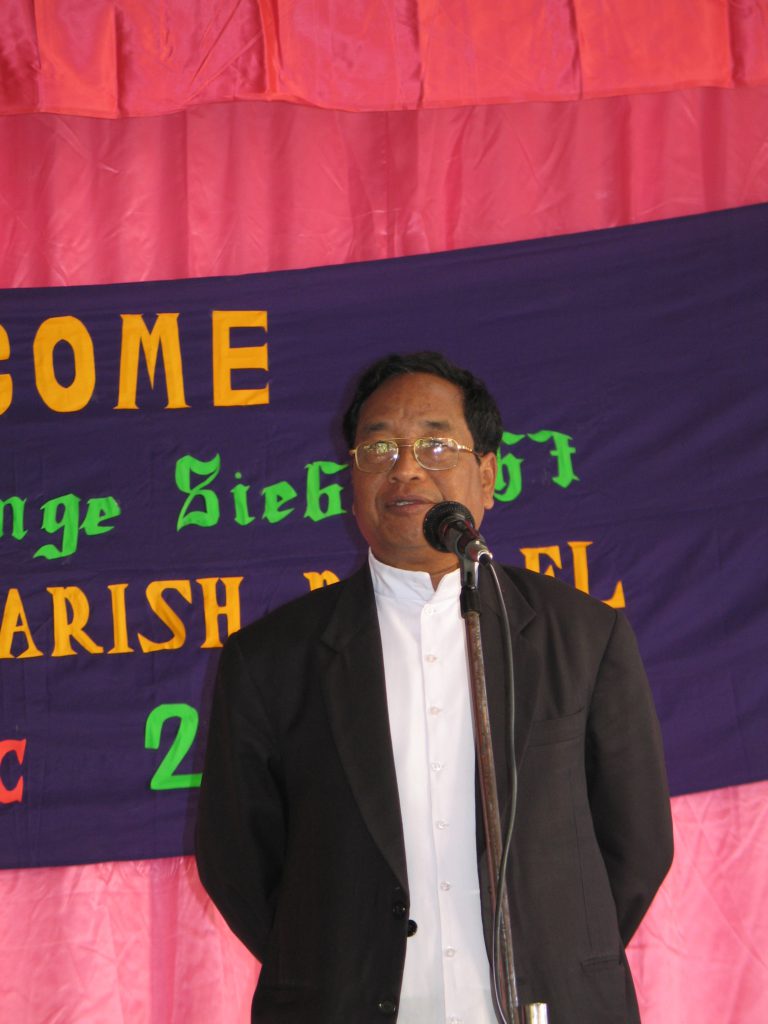The Archbishop of Imphal, in Manipur, India, says that violence is still taking place in the state and misses the lack of sufficient response from the central government under prime minister Narendra Modi.
Violence in Manipur, in India, continues to rage “here and there” four months after the first outbreaks in May, according to Archbishop Dominic Lumon, of Imphal Diocese.
Speaking by telephone to the international charity Aid to the Church in Need, the archbishop said that the situation could continue like this for many months, unless the central government intervenes more seriously. “We are hoping that the central government intervenes. If it says ‘stop’, I feel that the violence will stop, but if nobody intervenes it will linger on for many more months.”
During these months of violence, the silence of prime-minister Narendra Modi, in particular, has been deafening. He never visited Manipur since the violence erupted. “So far, we have not heard him say much, and it has been more than four months. Only once, when videos emerged of two girls being paraded naked, did he make a statement, but on the issue of the violence in general he has not said anything so far.”
When the first conflicts began, in May, ACN immediately sent emergency aid to help the local Church in its effort to provide basic support for the victims of the violence and has remained in contact with the local Church since then.
Interethnic and inter-religious conflict
According to media, at least 185 people have died in what began as interethnic fights between the majority Meitei community and the minority Kuki-Chin tribes. But the riots gained an inter-religious angle as well, since the Meitei are mostly Hindu, and the Kuki-Chin are mostly Christian. Hundreds of churches and Church buildings were destroyed, including those belonging to Christian Meiteis, which leads the Church authorities to conclude that there is also an element of Christian persecution involved.
“The way they destroyed statues, with a vengeance, they vandalised and destroyed everything, then they went away”, said Archbishop Dominic Lumon, speaking specifically of the destruction of a large church and pastoral centre. “When the fire was put out, they came back again, to make sure that the church was totally destroyed. It does not belong only to Kukis, it belongs to all of us. We can see that they are acting also out of hatred for Christianity, because Meitei churches were destroyed and non-Kuki religious leaders are also running from Imphal.”
The gangs that have spread the worst violence are armed, and act with impunity, leading the archbishop to conclude that they must be being supported and protected, although he does not know by whom.
Religions calling for peace
Faced with this reality, the Catholic Church is doing what it can, providing immediate aid and relief to thousands of people, in particular to about 2,400 families that are in an especially difficult situation, many of them still living in camps.
The Church has also invested heavily in dialogue with other religious leaders to try and defuse the tension.
“We created an Interfaith Forum for Peace and Harmony, and we have gathered nine times. We are going to bring the heads of both the communities together, to tell the gangs to stop the violence. Whether we will succeed or not, we don’t know, but it is our duty to tell them to stop the violence. The path to peace is only through dialogue, and that is what we are going to stress. Besides that, we can only appeal to the local government, and to the central government, to intervene and to stop the violence.”
Archbishop Lumon also asked the international community to pray for peace, and to not let the situation become another forgotten conflict. “In the history of salvation, when Israel forgets prayer, when Israel forgets God, there is always trouble. We need to pray more, we have to turn to God, we have to follow His commandments, and then He will be close to us, give us courage and help us to solve the problems and issues, so prayer is absolutely necessary.”
“All over India, Catholics are participating in candlelight processions, huge crowds of men and women have been praying in solidarity with Manipur, and marching for peace, and it is like that in many places. I feel God is listening to the prayers of these people and hopefully there will be a solution for this problem soon”, he concluded.


